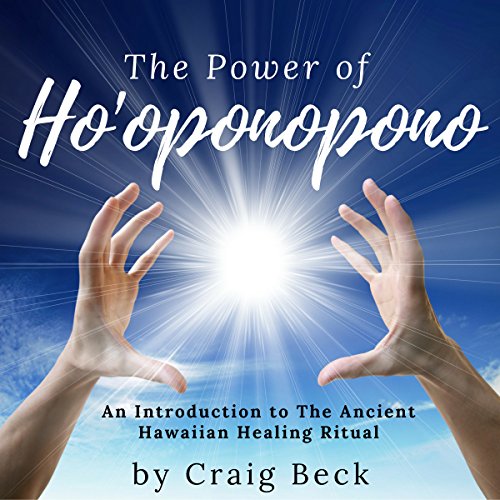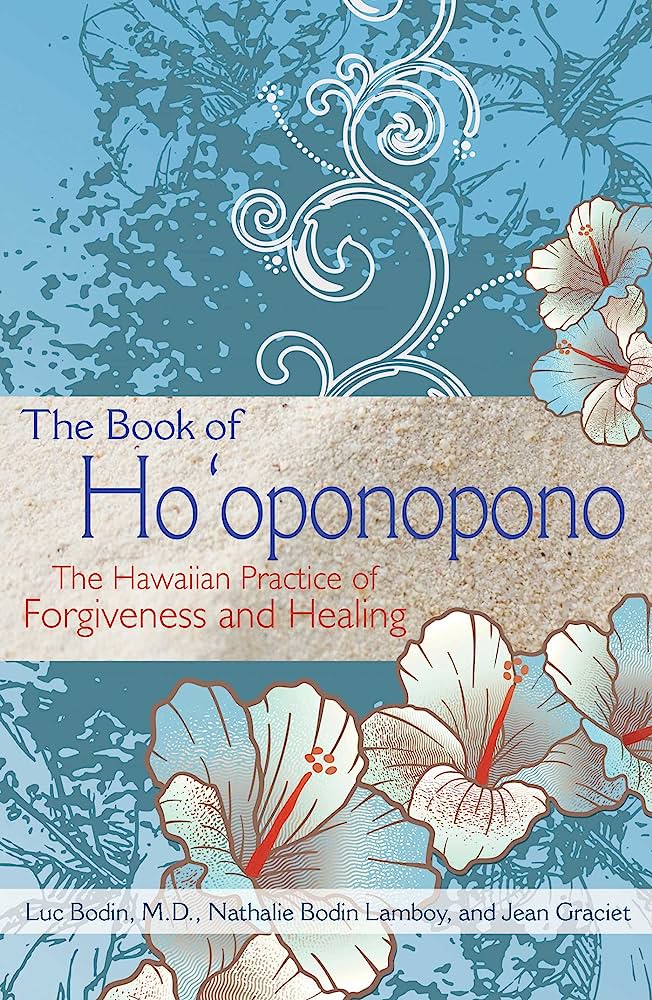Have you ever heard of Ho’oponopono? It may sound like a mouthful, but it’s actually a powerful practice that can help you unlock your emotional intelligence. So, what exactly is Ho’oponopono and how does it relate to emotional intelligence? Well, let me tell you. In this article, we’ll dive deep into the world of Ho’oponopono and explore how it can improve your understanding of emotions and relationships.
Ho’oponopono is an ancient Hawaiian practice that focuses on forgiveness, reconciliation, and letting go of negative emotions. It is a way of healing and restoring balance in relationships, both with others and with ourselves. By practicing Ho’oponopono, you can learn to take responsibility for your emotions, let go of resentment, and cultivate compassion and understanding. In turn, this can greatly enhance your emotional intelligence, allowing you to navigate your emotions and relationships with greater ease and effectiveness. So, if you’re curious to learn more about Ho’oponopono and its impact on emotional intelligence, keep reading because we’ve got a lot to cover!

What is Ho’oponopono?
Ho’oponopono is an ancient Hawaiian practice that focuses on healing and reconciliation. The word itself translates to “to make right” and emphasizes the importance of taking responsibility for one’s actions and experiences. It is believed that by addressing any unresolved conflicts or negative emotions within ourselves, we can bring about positive change and improve our overall well-being.
Understanding the origins of Ho’oponopono
Ho’oponopono has deep roots in Hawaiian culture and has been practiced for centuries. It is based on the indigenous belief that everything is connected, and that our relationships with others and with ourselves play a crucial role in our physical, mental, and emotional health. The practice was traditionally facilitated by a family elder or spiritual leader, and involved open and honest communication, forgiveness, and reconciliation.
Exploring the meaning and purpose of Ho’oponopono
The purpose of Ho’oponopono is to restore balance and harmony within oneself and in relationships with others. It is based on the belief that unresolved conflicts and negative emotions can manifest as physical and emotional pain, and that by addressing these issues, we can achieve a sense of peace and well-being. Ho’oponopono teaches us to take responsibility for our experiences and to seek forgiveness and reconciliation in order to heal and grow.
How Ho’oponopono is practiced
Ho’oponopono is practiced through a series of rituals and techniques that aim to release negative emotions and restore harmony. One of the main techniques used in Ho’oponopono is the repetition of four key phrases: “I’m sorry, please forgive me, thank you, I love you.” By sincerely repeating these phrases, we acknowledge our responsibility in any conflict or negative experience, seek forgiveness, express gratitude, and send love and compassion to ourselves and others.
Emotional Intelligence (EI) and its Importance
Emotional Intelligence, often abbreviated as EI, refers to the ability to recognize and manage our own emotions and the emotions of others. It involves a set of skills and competencies that allow us to navigate social interactions, build and maintain relationships, and effectively cope with stress and challenges. Emotional Intelligence plays a crucial role in personal growth and overall well-being.
Defining Emotional Intelligence and its components
Emotional Intelligence consists of several components that work together to form a comprehensive understanding of our emotions and the emotions of others. These components include self-awareness, self-regulation, social skills, empathy, and motivation. It is through the development and cultivation of these skills that we can enhance our Emotional Intelligence and improve our relationships and overall quality of life.
Recognizing the significance of EI in personal growth
Emotional Intelligence is an essential aspect of personal growth and development. It allows us to understand ourselves better, cultivate self-compassion, and make informed decisions based on our emotions and the emotions of others. By improving our Emotional Intelligence, we can navigate conflicts, communicate effectively, and build healthy relationships that positively impact our mental and emotional well-being.
The impact of EI on relationships and overall well-being
Emotional Intelligence has a profound impact on our relationships with others and our overall well-being. It enables us to establish meaningful connections, resolve conflicts, and communicate effectively. By understanding our emotions and being empathetic towards others, we can foster trust, deepen relationships, and promote a positive and supportive environment. Additionally, Emotional Intelligence helps us navigate stress and adversity, leading to better emotional well-being.

Ho’oponopono’s Influence on Emotional Intelligence
Ho’oponopono and Emotional Intelligence are closely interlinked, as the practice of Ho’oponopono enhances and promotes the development of key Emotional Intelligence skills.
Connecting Ho’oponopono to Emotional Intelligence
Ho’oponopono and Emotional Intelligence share a common goal of healing and personal growth. They both emphasize the importance of self-awareness, empathy, and the ability to manage one’s emotions. By practicing Ho’oponopono, we can deepen our understanding of our emotions, improve our ability to regulate them, and enhance our empathy towards others.
How Ho’oponopono enhances self-awareness
Self-awareness is a fundamental component of Emotional Intelligence, and Ho’oponopono provides a powerful tool to cultivate this skill. By engaging in self-reflection and taking responsibility for our experiences and emotions, we gain a deeper understanding of ourselves. Ho’oponopono encourages us to explore our inner conflicts and negative emotions, leading to increased self-awareness and personal growth.
The role of Ho’oponopono in developing empathy
Empathy is another critical aspect of Emotional Intelligence, and Ho’oponopono helps foster empathy towards ourselves and others. By acknowledging and addressing our own pain and conflicts through the practice of Ho’oponopono, we develop a greater capacity for understanding and empathizing with the experiences and emotions of others. This allows us to build stronger, more meaningful connections with those around us.
Building resilience through Ho’oponopono
Building resilience is an essential skill in Emotional Intelligence, and Ho’oponopono can help develop this resilience. By acknowledging and releasing negative emotions, forgiving ourselves and others, and expressing gratitude and love, we learn to bounce back from adversity and develop a more positive and resilient mindset. Ho’oponopono teaches us that we have the power to heal ourselves and create positive change in our lives.
The Four Key Principles of Ho’oponopono
Ho’oponopono revolves around four key principles that guide its practice. These principles serve as a framework for taking responsibility, seeking forgiveness, expressing gratitude, and embracing love and compassion.
Taking responsibility for one’s experiences
The first principle of Ho’oponopono is taking responsibility for our experiences and emotions. It involves recognizing that we have the power to create our realities and that any conflicts or negative experiences are a result of our own thoughts, beliefs, and actions. By taking responsibility, we can begin the healing process and create positive change in our lives.
Seeking forgiveness and reconciliation
The second principle of Ho’oponopono is seeking forgiveness and reconciliation. It emphasizes the importance of acknowledging our mistakes, apologizing, and seeking forgiveness from ourselves and others. By engaging in this process, we can release any negative emotions and cultivate a sense of peace and harmony within ourselves and our relationships.
Expressing gratitude and appreciation
Gratitude and appreciation are central to the practice of Ho’oponopono. The third principle encourages us to express gratitude for ourselves, others, and the experiences that have shaped us. By cultivating gratitude, we shift our focus towards the positive aspects of our lives and promote a sense of contentment and abundance.
Embracing love and compassion
The fourth principle of Ho’oponopono is embracing love and compassion. It emphasizes the importance of unconditional love towards ourselves and others. By embodying love and compassion, we create a nurturing and supportive environment that fosters healing, growth, and the development of Emotional Intelligence.

Ho’oponopono Techniques and Practices
Ho’oponopono encompasses a variety of techniques and practices that can be incorporated into our daily lives. These practices enable us to release negative emotions, restore harmony, and promote personal growth and well-being.
Ho’oponopono meditation and mantra
One of the most common techniques used in Ho’oponopono is meditation, accompanied by the repetition of the four key phrases: “I’m sorry, please forgive me, thank you, I love you.” By sitting in a quiet and peaceful environment, focusing on our breath, and sincerely repeating these phrases, we create a space for healing, self-reflection, and emotional release.
Using Ho’oponopono in everyday situations
Ho’oponopono can be practiced in everyday situations by acknowledging our emotions and taking responsibility for our reactions and experiences. For example, if we find ourselves in a conflict or experiencing negative emotions, we can pause, take a deep breath, and repeat the Ho’oponopono phrases to release any tension and promote understanding and reconciliation.
Applying Ho’oponopono in relationships
Ho’oponopono can be a powerful tool in nurturing and maintaining healthy relationships. By practicing the four key principles, especially seeking forgiveness and expressing gratitude, we can resolve conflicts, deepen connections, and create a more loving and harmonious environment within our relationships.
The power of visualizations and affirmations
Visualizations and affirmations are often used in conjunction with Ho’oponopono to reinforce positive change and healing. By visualizing ourselves and others in a state of harmony and forgiveness, and affirming positive statements such as “I am worthy of love and forgiveness,” we can tap into the power of our subconscious mind and manifest emotional healing and growth.
Case Studies and Success Stories
Real-life examples and success stories demonstrate the power of Ho’oponopono in unlocking emotional intelligence and promoting personal growth.
Real-life examples of Ho’oponopono’s impact on EI
There have been numerous instances where practicing Ho’oponopono has led to significant improvements in Emotional Intelligence. For example, individuals who regularly practice Ho’oponopono have reported a greater sense of self-awareness, improved empathy towards others, and enhanced abilities to manage emotions and navigate conflicts.
How individuals overcame emotional challenges through Ho’oponopono
Ho’oponopono has been effective in helping individuals overcome emotional challenges such as anxiety, depression, and relationship conflicts. By applying the principles and techniques of Ho’oponopono, individuals have reported a greater sense of peace, healing, and emotional well-being.
Testimonials from people who improved their emotional well-being
Countless individuals have shared their testimonies of how Ho’oponopono has positively impacted their emotional well-being. These testimonials highlight the transformative power of Ho’oponopono in fostering self-love, acceptance, and inner peace.

Scientific Research on Ho’oponopono and Emotional Intelligence
Scientific research on Ho’oponopono and its influence on Emotional Intelligence is still in its early stages. However, some studies have started to explore the potential benefits and neurological basis of these practices.
Exploring studies linking Ho’oponopono and EI
Several studies have begun to investigate the effects of Ho’oponopono on Emotional Intelligence. These studies aim to explore the relationship between Ho’oponopono and skills such as self-awareness, empathy, and emotion regulation. While more research is needed, initial findings suggest a positive impact on Emotional Intelligence.
The neurological basis of Ho’oponopono’s effect on emotions
Studies have also looked at the neurological basis of Ho’oponopono’s effect on emotions. Neuroimaging techniques such as functional magnetic resonance imaging (fMRI) have shown changes in brain activity during Ho’oponopono practices, indicating the potential for neuroplasticity and emotional regulation.
The potential benefits of incorporating Ho’oponopono in psychological therapies
The potential benefits of incorporating Ho’oponopono into psychological therapies have also been explored. Some researchers suggest that the principles and techniques of Ho’oponopono, such as taking responsibility, seeking forgiveness, and expressing gratitude, could be valuable additions to existing therapeutic techniques, promoting emotional healing and growth.
Ho’oponopono Certification and Training Programs
For individuals interested in deepening their understanding and practice of Ho’oponopono, there are various certification and training programs available.
Understanding the options for becoming a certified Ho’oponopono practitioner
Becoming a certified Ho’oponopono practitioner involves undergoing specialized training and education in the principles and techniques of Ho’oponopono. These programs provide a comprehensive understanding of the practice and enable individuals to guide others through the healing process.
Exploring the curriculum and requirements for Ho’oponopono certification
Each certification program may have its own curriculum and requirements. However, common topics covered in these programs include the history and philosophy of Ho’oponopono, the four key principles, meditation techniques, and practical applications of Ho’oponopono in various contexts.
The benefits of undergoing Ho’oponopono training
Undergoing Ho’oponopono training offers numerous benefits, including a deeper understanding and practice of the principles and techniques, the ability to guide and support others in their healing journeys, and the opportunity to connect with a community of like-minded individuals. These programs also provide a structured framework for personal growth and development.

Challenges and Criticisms of Ho’oponopono
As with any practice, there are challenges and criticisms associated with Ho’oponopono.
Addressing skepticism towards Ho’oponopono’s effectiveness
Ho’oponopono faces skepticism from individuals who question its effectiveness or view it as a form of pseudoscience. Addressing these concerns involves continuing to explore the scientific basis of Ho’oponopono and sharing personal experiences and success stories that highlight its positive impact.
Critiques of Ho’oponopono’s cultural appropriation
Critics argue that the widespread popularity and adaptation of Ho’oponopono by non-Hawaiians has led to cultural appropriation. It is crucial to respect and honor the origins of Ho’oponopono, acknowledge its indigenous roots, and ensure that the practice is applied in a culturally sensitive manner.
The limitations and potential misunderstandings of Ho’oponopono
Ho’oponopono is not a one-size-fits-all solution and may have limitations in addressing complex emotional and psychological issues. It is essential to recognize that Ho’oponopono is not a substitute for professional therapy or medical treatment and should be used in conjunction with appropriate professional guidance.
Ethical Considerations in Ho’oponopono Practice
When practicing Ho’oponopono, it is essential to consider and respect ethical considerations to ensure cultural sensitivity and avoid exploitation or commercialization.
Respecting cultural traditions and origins of Ho’oponopono
Ho’oponopono is rooted in Hawaiian indigenous traditions and beliefs. Respecting its cultural traditions and origins involves understanding and honoring the practices of the indigenous culture, and recognizing the unique context from which Ho’oponopono emerged.
Applying Ho’oponopono in a culturally sensitive manner
When applying Ho’oponopono in different cultural contexts, it is crucial to do so in a culturally sensitive manner. This involves recognizing and adapting the practice to align with the cultural traditions and beliefs of the specific community to avoid appropriating or misrepresenting its principles and techniques.
Avoiding exploitation and commercialization of Ho’oponopono
Ho’oponopono should be approached with integrity and a commitment to its original purpose. Avoiding the exploitation and commercialization of Ho’oponopono means using the practice for its intended purpose of healing and personal growth rather than for personal gain or monetary profit.
Ho’oponopono’s Impact on Personal Growth
Ho’oponopono has the potential to create transformative personal growth by fostering self-love, acceptance, and emotional healing.
The transformative power of Ho’oponopono in personal development
Ho’oponopono offers a transformative journey of personal development by acknowledging and releasing negative emotions, taking responsibility for one’s experiences, and cultivating forgiveness, gratitude, love, and compassion. Through practicing Ho’oponopono, individuals can experience profound personal growth and increased Emotional Intelligence.
How Ho’oponopono fosters self-love and acceptance
Ho’oponopono encourages individuals to cultivate self-love and acceptance by taking responsibility for their experiences, forgiving themselves, and expressing gratitude for their own growth and experiences. This process allows for increased self-awareness and promotes a deep sense of self-compassion and acceptance.
Achieving emotional healing and inner peace through Ho’oponopono
Ho’oponopono offers a pathway to emotional healing and inner peace by addressing and releasing negative emotions, seeking forgiveness, expressing gratitude, and embracing love and compassion. Through regular practice, individuals can experience emotional healing, overcome past traumas, and find a sense of inner peace and well-being.
Benefits of Incorporating Ho’oponopono in Daily Life
Incorporating Ho’oponopono into daily life provides numerous benefits that contribute to emotional well-being and the development of healthy relationships.
Enhancing emotional well-being through Ho’oponopono
Regular practice of Ho’oponopono helps in enhancing emotional well-being by providing a platform for releasing negative emotions, fostering self-awareness, and promoting forgiveness, gratitude, love, and compassion. These practices contribute to a more positive and balanced emotional state.
Improving relationships and communication
Ho’oponopono has a positive impact on relationships by promoting open and honest communication, forgiveness, and reconciliation. Incorporating Ho’oponopono into daily life allows for improved understanding, empathy, and the ability to navigate conflicts in relationships, leading to healthier and more fulfilling connections.
Creating a positive and harmonious environment
Ho’oponopono contributes to creating a positive and harmonious environment by fostering a sense of peace, love, and acceptance. By applying the principles of Ho’oponopono, individuals can create an atmosphere of understanding, compassion, and support, leading to a more positive and nurturing environment.
The Future of Ho’oponopono and Emotional Intelligence
The future of Ho’oponopono and Emotional Intelligence holds great potential for further integration and development.
Potential developments and advancements in Ho’oponopono
As Ho’oponopono gains more recognition and scientific exploration, there is potential for further developments and advancements. These may include refining the practice, adapting it to different cultural contexts, and uncovering new techniques that enhance its effectiveness.
The role of technology in popularizing Ho’oponopono practices
Technology has the potential to play a significant role in popularizing Ho’oponopono practices. With the rise of digital platforms, apps, and online communities, individuals can access Ho’oponopono resources, connect with practitioners, and engage in guided practices, making it more accessible to a broader audience.
The evolving understanding and integration of Ho’oponopono with EI
As research on Emotional Intelligence and healing practices like Ho’oponopono progresses, there is increasing acknowledgment of the interrelationship between the two. Future exploration may focus on further understanding how Ho’oponopono enhances key Emotional Intelligence skills and how Emotional Intelligence principles can enhance the practice of Ho’oponopono.
Conclusion
The power of Ho’oponopono in unlocking Emotional Intelligence is profound. By addressing and releasing negative emotions, taking responsibility for our experiences, seeking forgiveness, expressing gratitude, and embracing love and compassion, we can cultivate self-awareness, empathy, and resilience. Through the practice of Ho’oponopono, we unlock the potential for personal growth, emotional healing, and the creation of harmonious relationships. Letting go of past grievances and shifting our focus towards love and gratitude paves the way for a profound transformation in our own lives and the lives of those around us. Embracing Ho’oponopono offers a powerful path to unlocking our emotional intelligence and embracing our true potential.